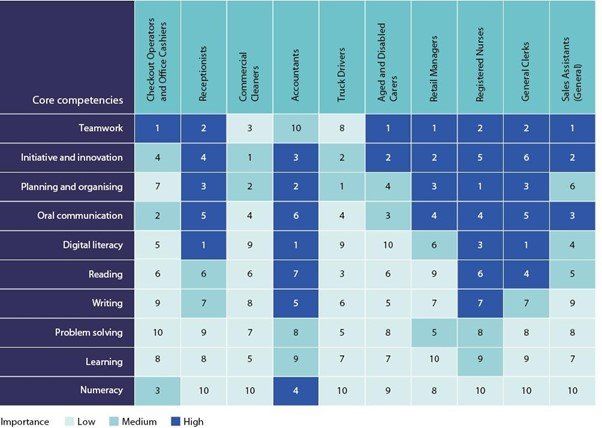I quit
One of the main reasons employees consider leaving their current roles is pay. In early October 2021, over a thousand CFOs from across the US by Duke University’s Fuqua School of Business and Federal Reserve Banks of Richmond, Virginia, and Atlanta reported that almost 75 per cent of firms are having difficulty filling positions. Over 80 per cent of the same firms are raising the starting wages by almost 10 per cent in an attempt to fill the vacancies.
The pandemic has seen unprecedented flexible working hours. In a recent survey of over 6,000 women in Brazil, China, India, Mexico, the UK and the US, over 90 per cent of women said they would change jobs to boost their career prospects and receive a competitive salary. In Australia, company profits have increased on average by just under 9 per cent each year. Yet, the average pay increase has only been just over 2 per cent. Employees are well aware that employers can afford a better pay increase, and if it's not forthcoming, they'll go elsewhere to get it.
Changing industries could be the most significant opportunity for most job seekers in their careers for better pay. The UK's Royal College of Nursing estimates over 50,000 nursing vacancies in the NHS and has called for an immediate pay rise for nursing staff. The NHS Foundation Trust expressed their concerns that nurses can work for companies like Amazon for more money than they can ever earn in the NHS and other care sectors. The NHS understands that there needs to be a concerted effort to find long-term recruitment and retention solutions.
Interestingly, recruiters and employers are beginning to look in other ‘pools’ of professionals for talent. One such headhunter for the National Australia Bank was seeking to recruit a branch manager and advertised, “Please do NOT apply for this job if you have many years of relevant experience in banking, delivering to the highest standards, demonstrating exceptional capability and have consistently been rated highly by your banking bosses. I’m sick of fishing in the same pond of people jumping from bank to bank. Are you a barista who knows how to work under pressure with a smile? Please apply. Do you know how to manage a busy clothing store whilst delivering a great in-store experience? Apply now! THAT’s what we are looking for with this new branch manager opportunity. Amazing people who work hard, know how to lead, want to deliver for customers, and bring a big smile and great attitude to work. Bankers need not apply”.
Recruitment efforts for the tourism and hospitality industries ranked second on SEEK, Companies are beginning to realise that there is benefit in assessing job seekers in their core competencies rather than their skills and experience. This shift in recruitment could cause increasing difficulties in attracting workers into industries that are well-known for their long hours and poor pay, including agriculture, tourism, events, arts, sport, and leisure. The situation is so tricky in Queensland that the government launched the AUD$7.5 million 'Work in Paradise' campaign to address the shortage of workers that tourism businesses are facing. The package includes incentives and travel vouchers to encourage workers. The chronic shortage of workers in this industry is not confined to Australia; it's a worldwide concern.
Core competencies can be described as the non-specialist skills gained in early life and schooling and provide a base to develop skills and specialties. These foundation skills are literally the building blocks that are common and required across most industries and occupations. The core competencies include communication, literacy, innovation, teamwork, problem-solving and the ability to learn.
Recruiters are excited about having a defined and accepted pathway to assess a worker's capability and help employers understand that capability potentially applies to a different job in a different industry. The classification will allow HR teams to consider the new suitability of candidates that don’t necessarily have the experience but do have the skills.
An Australian Skills Classification survey discussed the importance of personal skills, a key employability component. Over 75 per cent of employers considered these skills to be as, or if not more important than specialist skills. The Australian Skills Classification states, “Core competencies developed from previous jobs can also be applied to other jobs. To help inform this understanding, a rating scale for the importance of each of the core competencies is currently being refined, and measure descriptions for the scale are being developed”.
The below
figure shows the importance of each core competency across the largest occupation industries across Australia. The importance is ranked between 1 (high) and 10 (low) to indicate the importance of the most critical competencies.
The Australian Skills Classification includes skills profiles for 600 occupations. These skill profiles comprise core competencies, specialist tasks, and technology tools and clearly outline the skills required for Australian occupations and their relationships. This initiative can help identify transferrable skills between jobs, workforce skills gaps, business diversification opportunities, and training package update requirements.




